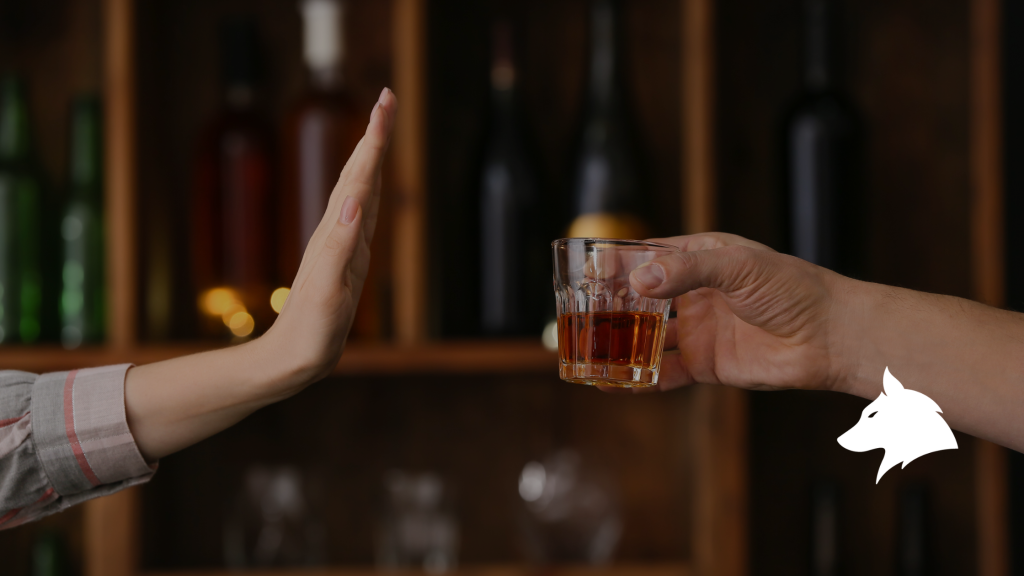It’s time to put the bottle down.
The end-of-year party: a chance to celebrate, connect and reward the team. But as society and workplace culture evolve, so too should the way we celebrate. The days of alcohol-fuelled office parties are fading fast, and for good reason.
More Australians than ever are choosing to drink less—or not at all. Whether it’s for health, religious, cultural or personal reasons, a growing number of people simply don’t want alcohol to be the main event. When a party revolves around booze, it risks alienating these individuals, creating an environment where they feel excluded rather than celebrated.
For many of those who choose not to drink, rather than be singled out or run the gauntlet of “why aren’t you drinking?”, they choose to be “unavailable” for the event. This sadly creates a divide between them and the team; not to mention some managers still see this as “not being a team player”.
A Shift in Drinking Culture
Per capita alcohol consumption in Australia is at its lowest level in nearly 50 years. The “sober curious” movement is growing, with more people embracing moderation, mindful drinking, or abstinence altogether. Research by DrinkWise supports this shift: Australians are increasingly drinking less and making more considered choices.
It’s a change that aligns with broader workplace values—wellbeing, inclusion and psychological safety. Yet, many corporate events haven’t caught up. Many business leads still choose to allow alcohol to set the festive mood rather than focusing on people and connection.
HR Headache
Alcohol-heavy events are a known risk for HR teams. From inappropriate behaviour to next-day absenteeism, the fallout can damage culture, not build it. There’s also the liability: who’s driving home? Who’s footing the bill for the Ubers? What happens when someone has one too many on the company tab?
And let’s be honest: when drinks are free, and times are tight, people tend to overindulge. That doesn’t make for better connection or a stronger team—just more headaches (sometimes literally).
Just because someone is enjoying themselves while taking part in the free-flowing booze and food doesn’t mean they’re enjoying themselves at work—or worse, that they trust their team any more.
Many HR teams ask us, “How do we get more people to attend our team days?” And it’s a fair question. When you’re investing in development, you want engagement and attendance. Some default to “free booze and food” to lure attendance—but that doesn’t build loyalty. If you’re going to hold it against people if they don’t attend, then make it a work-hour event. Reduce the bar spend by running an in-house team development session. This way, people are paid to be there, they’re not losing family time, and alcohol can be better managed as it’s during business hours.
Inclusion Means Rethinking the Default
It’s time to flip the script. A modern end-of-year event should be inclusive, energising and memorable for all the right reasons. That means:
- Creating events where alcohol isn’t the main feature (or even present at all)
- Designing engaging experiences that keep people interacting and entertained
- Communicating clearly and early about what to expect
- Offering quality non-alcoholic options for everyone
- Setting the tone from the top—leaders lead by example
- Creating an event that promotes and attracts full attendance by choice, not pressure
Forced to Fit In
When alcohol is the social glue, non-drinkers or low-drinkers often feel pressured to fit in. This can lead to:
- People drinking more than they’re comfortable with just to avoid standing out
- Individuals feeling unsafe or unsupported in being their authentic selves
- A workplace culture that values conformity over individuality
- Peer pressure masquerading as “team bonding”
- Reinforcing a risk-taking mindset that can contribute to burnout, poor judgement, injuries or long-term toxicity
This kind of culture doesn’t build trust—it erodes it. It creates an unspoken message: if you want to belong, you’d better play along. That’s not a team—it’s groupthink in party hats.
When people are empowered to show up as they are, without pressure to drink or perform, real connection can happen. That’s the kind of environment where creativity, psychological safety and high performance thrive.
Why Inclusion Matters
When people are excluded—intentionally or not—it sends a message: you don’t belong here. Over time, this undermines trust, morale, and loyalty. It can also drive turnover, especially among team members from diverse backgrounds who may already feel like they sit on the edge of workplace culture.
Inclusive events are more than just “nice to have”—they’re good for business. They help everyone feel safe, respected and valued. And when people feel like they belong, they perform better, collaborate more effectively and stay longer.
Not sure what turnover is costing your organisation? Use our Team Turnover Calculator to find out just how much it’s worth investing in a better culture.
Slow the Sip with Purposeful Play
At Premier Team Building, we know how to design events that naturally reduce alcohol consumption by being, quite simply, too fun to miss. When teams are immersed in activities like our Minute To Win It social event, LEGO® challenges or creative problem-solving tasks, there’s less time (and inclination) to hover near the bar.
If you do include alcohol, make it part of a broader, structured experience—like a blending session or sparkling wine making class—to encourage moderation and engagement.
Culture, Not Just Celebration
Your team event is more than a party—it’s a reflection of your culture. Thoughtful, inclusive planning shows that everyone is valued. It helps foster connection, inclusion and positive energy that lasts far beyond the last toast.
Before your next end-of-year celebration, ask: does this event build culture or just tick a box? Are we setting the tone we want carried into the year ahead?
Because when people feel safe, seen and included, that’s when culture thrives.
How does your culture stack up? Take our Free Culture Audit
Ready to host a celebration that actually builds culture?
Premier Team Building designs bespoke end-of-year experiences that put people first—and still bring the fun. Contact our team about creating an event worth remembering.


